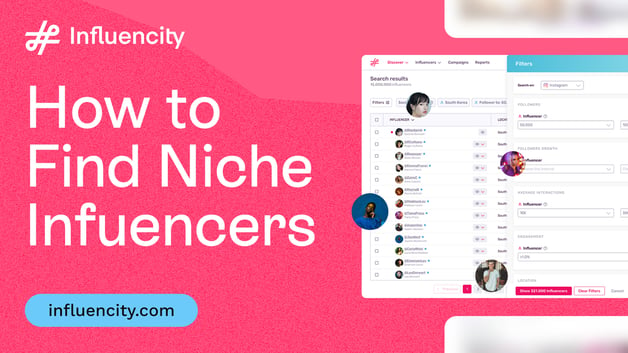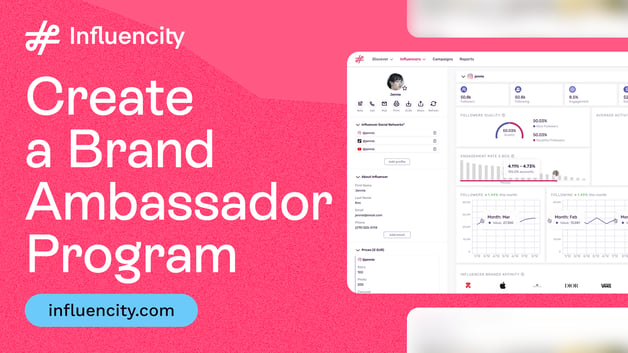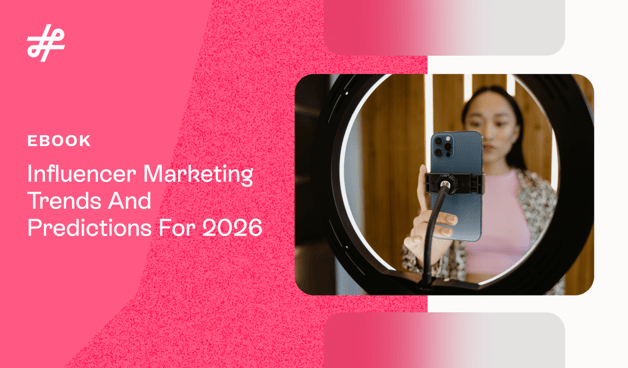3 Proven Ways to Find Micro-Influencers for Your Brand (& How To Vet Them)
Micro-influencers can be a powerful addition to your brand marketing strategy. With the right collaboration, you can amplify your brand message, drive targeted engagement, and generate authentic connections with your target audience. But it’s important to find micro-influencers who align with your brand values, have a genuine connection with their followers, and possess a high level of expertise and influence within your specific industry or niche.
So, what’s the secret?
In today’s article, we’re going to share 3 proven strategies to help you find micro-influencers for your brand collaborations. Specifically, we will explore the importance of identifying suitable micro-influencers, vetting their authenticity, and building successful partnerships.
How To Find Micro-Influencers for Your Brand
The key to success in influencer marketing ultimately comes down to the influencer you work with and whether they are a good fit for your brand. They could be the best influencer in the world, but unless their brand values align with your own brand and the objectives of your campaign, then you are unlikely to achieve your desired results.
So, how can you find micro-influencers that will guarantee results?
Let’s explore 3 proven strategies to help you with this.
Identify Suitable Micro-Influencers
Identifying suitable micro-influencers is a crucial step in leveraging the power of influencer marketing for your brand. This means finding micro-influencers who not only have a strong following but also share a similar brand ethos and target the same audience that you want to reach.
Firstly, define your target audience in detail. Understand their demographics, interests, behaviors, and preferences. This will help you narrow down your search so that you can find micro-influencers who have a following that aligns with your target market.
Secondly, research relevant platforms where your target audience is active. Whether it's Instagram, YouTube, TikTok, or a specific niche community, focus your search on platforms where your target audience spends their time. This will increase the chances of finding micro-influencers who have a genuine connection with their followers.
Hashtags and keywords can help you find micro-influencers who are already talking about topics that are relevant to your brand. Another great tool for this is using an influencer marketing platform like Influencity to speed up your search and streamline the process of finding the right micro-influencers for your brand. These platforms provide comprehensive databases of influencers, allowing you to filter your searches based on niche, audience size, engagement metrics, and other relevant criteria.
Finally, don't limit your search to mainstream influencers. Explore niche communities, forums, or blogs related to your industry. These communities often harbor passionate micro-influencers who may have a smaller following but possess a highly engaged and dedicated audience. Engaging with micro-influencers within these communities can result in more authentic and impactful partnerships.
Vet Their Authenticity
Vetting the authenticity of a micro-influencer is a crucial step to ensure the credibility and effectiveness of your influencer marketing campaigns. By conducting the right checks, you can avoid collaborating with fake or disengaged micro-influencers, ultimately safeguarding your brand reputation, and maximizing the impact of your campaigns.
Start by analyzing an influencer’s engagement metrics. Look beyond the number of followers and focus on metrics such as likes, comments, and shares. Genuine micro-influencers typically have a higher engagement rate, indicating an active and dedicated audience that is genuinely interested in their content.
Review the quality of their content. Assess whether it is authentic, creative, and aligned with your brand values. Look for consistency in their tone, style, and messaging. Authentic micro-influencers will have a unique voice that resonates with their audience and maintains a genuine connection.
A great tool to consolidate and streamline the entire influencer vetting process is Influencity’s Audience Quality Score. This feature allows you to evaluate the quality and authenticity of an influencer's audience quickly and efficiently. It takes into account metrics such as follower growth patterns, engagement rates, and the presence of suspicious or inactive accounts. That way, you can easily identify potential red flags like inflated follower numbers or a lack of genuine engagement.
Build A Successful Partnership
Finally, once you find the right micro-influencer for your campaigns, the key to success is building a successful long-term partnership that maximizes the impact of your influencer marketing efforts. Long-term collaborations are the only way to build the level of authenticity that you need to develop brand trust and credibility.
Here are a few tips to help you build a successful influencer partnership:
- Set clear campaign objectives: Clearly define your goals and expectations for the collaboration. Whether it's increasing brand awareness, driving website traffic, or boosting sales, having specific objectives will guide your partnership and help you measure its impact.
- Establish clear communication: Open and transparent communication is vital for a successful partnership. Aside from your campaign objectives, clearly communicate your brand guidelines as well as any specific campaign requirements. Regularly engage with the micro-influencer to provide guidance, answer questions, and address any concerns.
- Collaborate on creative content: Encourage the micro-influencer to showcase your products or services in a creative and authentic way. Give them creative freedom while providing guidelines to maintain brand consistency. This approach can lead to more genuine and engaging content that resonates with their audience.
- Use Influencer Relationship Management tools: An IRM can help you streamline communication, keep track of your collaborations, and enhance your micro-influencer relationships.
- Track and measure results: Implement robust tracking mechanisms to measure the impact of a micro-influencer collaboration on your eCommerce sales. For example, you can use unique tracking links, promo codes, or customized landing pages to attribute sales to a micro-influencer's efforts.
By following these strategies, you can foster successful partnerships with the micro-influencers that you find, leading to increased brand awareness, credibility, and engagement within your target audience. These partnerships can become invaluable assets in driving your marketing objectives and building a strong online presence.
Tags:



















%20and%20How%20Can%20They%20Benefit%20Your%20Brand%20article.jpg?length=628&name=What%20Are%20Key%20Opinion%20Leaders%20(KOL)%20and%20How%20Can%20They%20Benefit%20Your%20Brand%20article.jpg)









